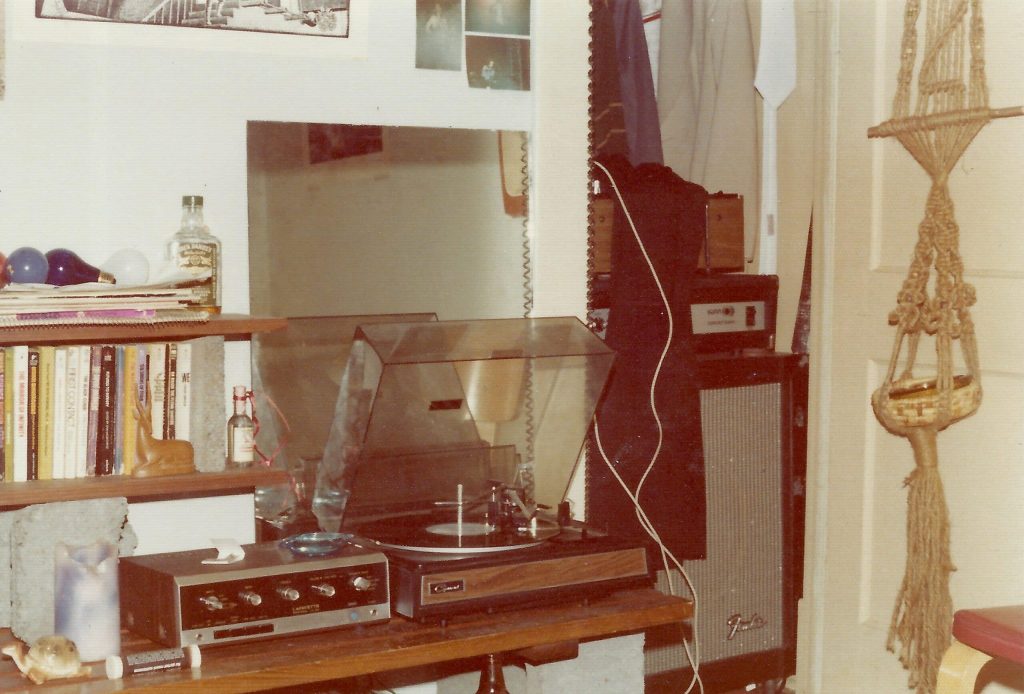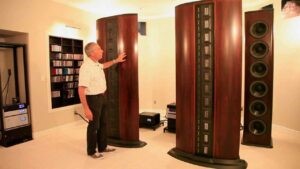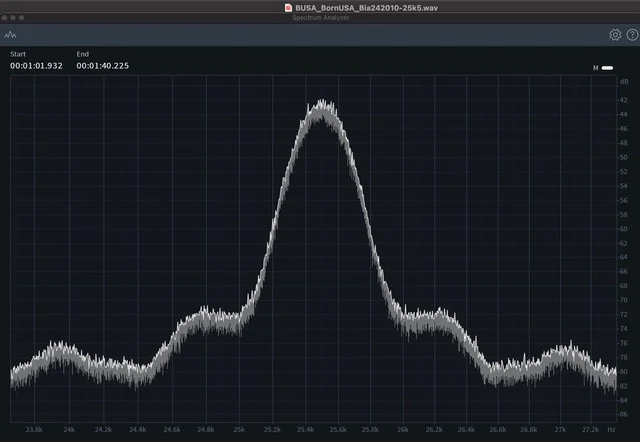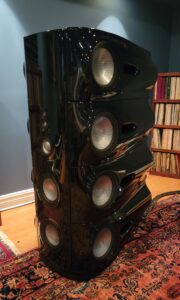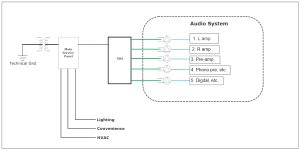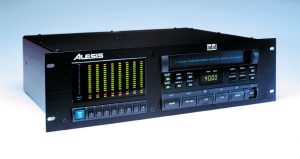PF Senior Associate Editor shares with us one of his columns from PS Audio's Copper Magazine, Issue 127, December of 2020. He raises excellent issues here, ones that the readers of PF may well benefit from.
Enjoy!
Dr. David W. Robinson, Editor-in-Chief
As audiophiles, we are on what can sometimes seem a never-ending quest for better sound from our system(s). After all, the better the sound, the closer we are to the music, and the more enjoyable it is to listen to our systems…right?
That's the ideal. But can a system be too good?
Wait. How does that concept even make sense? Well, let me put this out there:
An audio system might be too good when it makes you feel bad.
To be clear, I'm not talking about low-fi, lousy-sounding products and systems that would turn discriminating listeners off because they sound harsh, dull, flat, grainy, bass-shy, are lacking in detail or all of the above. (Can an audio system sound rough and dull at the same time? Take a ride in my Elantra.) I'm referring to high-end and ultra-high-end systems that somehow make you feel uneasy, anxious, or otherwise stressed out.
But, isn't that counter to the whole audiophile thing so many of us have wrapped our lives around, the striving for greater and greater listening ecstasy? In my experience, sometimes…no.
Here's the fundamental concept: the actual audio system itself and the sound it produces is only half of the equation. The other half is the psychological reaction of the listener in interacting with their system.
I did not stress out about this system sounding too good circa 1976 - 1977. Lafayette integrated amp, Garrard turntable, EPI 50 speakers (not shown). A friend's Sunn Concert Bass amp and homemade guitar speaker cabinet are in the closet.
How are the ways in which this psychological interaction can be less than happy and peppy and bursting with love? The first thing that comes to mind is a system that's so revealing and sensitive that it needs constant fine-tuning to sound its best. It could be a turntable setup that's so good that the differences in vinyl record thicknesses will compel some listeners to want to adjust VTA for each record. Or the electronics won't sound their best, or even good, unless the system has been warmed up (and the components have been broken in). I've heard phono cartridges take time to warm up while playing. And has anyone tried this thing? If you have vacuum tubes in your system, they're subject to wear and sonic degradation, and may or may not be performing at 100 percent. (There's an easy way to eliminate that potential source of brow-furrowing: don't have tubes in your system.)
Thoroughbred audio systems can also be much more sensitive to the vagaries of variables like the quality of the AC power, temperature and humidity than less-tetchy rigs. (I covered this in Copper Issue 120, "Confessions of a Setup Man, Part Nine: Inconsistency.")
A corollary of living with an ultra-resolving system is its sensitivity to component changes and tweaks. The greater the resolution of the system, the more it can reveal the differences wrought by swapping cartridges, preamps, speakers, amps, cables and so on, to say nothing of tweaks like isolation feet and platforms, AC power conditioners, and cleaning your connections regularly. Then there are the more exotic system tweaks like system-grounding devices, Shakti stones, Shun Mook Mpingo discs, Bybee quantum purifiers and many others. An ultra-resolution system may force you to re-evaluate the fundamentals of your system setup as well. A new amp may reveal that the speakers aren't optimally placed. When I bought a new phono stage last summer, it revealed that my VTA was a little off.
Then you gotta consider: are the changes "improvements," or just "differences?" Or, did you gain something—more detail, maybe—but lose something else, perhaps a little sweetness to the sound? One other thing—great recordings will sound sublime on world-class systems, but bad ones may be revealed as really bad.
OK, veteran audiophiles know all this system stuff, so what's the point?
There are those who find the endless tweaking, working and striving to get better and better sound extremely rewarding in and of itself. But for those of us audiophiles who might be more…tightly-wrapped (did I say I was one of them? Did I?), there's the anxiety of never knowing if your system is "right," or if it could sound better with a different digital cable, or by swapping the isolation feet under the preamp, or toeing out the speakers another 1-16th of an inch. The better the system, the greater the chance that it might not be set up optimally. And the greater the chance that, rather than just sitting back and basking in the sound, you'll be twitching in your listening seat wondering if the VTA is just so or maybe a different digital filter would sound better. There are those of us who simply don't want to spend lots of time—or any time—fussing with our systems.
Let's talk about money! Most high-end components aren't cheap. And who among us hasn't spent beyond our means in acquiring a new component? If you're an audiophile, it's almost a badge of honor. (Or a source of chagrin when your significant other sees the credit card bill.) So, I'm sure there's at least one person besides me who has sat down to listen, looked at the budget-busting component and gotten stressed over it. Did I really need to spend all that money?
With great systems come great expectations. When you or I go to an audio show or encounter a no-holds-barred system, we expect it to blow our minds. If it doesn't, there's a disconnect. When I was working for editor-in-chief Harry Pearson at The Absolute Sound, visitors expected the Big System to sound like The Voice of the Almighty. if it didn't, Harry's unhappiness level, and therefore mine, would go off the meter.
Paul McGowan with an Infinity IRS V loudspeaker system similar to the one I used to listen to at The Absolute Sound.
Then there's perhaps the most significant source of agita of all: what I call Reviewer Syndrome. This is an occupational hazard among audio professionals, reviewers, and audiophiles. Whenever you listen to a system, you evaluate it with your critical reviewing hat on. What's the bass articulation like? Does the soundstage extend past the speakers? Can you hear the back wall of the concert hall? But then when you try to simply listen for pleasure, you can't shut that analytical reviewer mind off. It can be maddening.
So what's the cure for this audiophilia nervosa? (Yes, the term has made its way into the Urban Dictionary.) I'm going to propose one:
Get a system that's really good, but not that good.
Whaaaa?
It'll be more forgiving of less-than-optimal setup, whether for speaker placement, VTA, cable dressing, room optimization, or other factors.
It won't be as affected by the vicissitudes of temperature, humidity, and AC power.
You won't have to fuss with it much, if at all. A mastering engineer I recently talked to said, "I don't want a system I have to treat like a pet!"
It'll be more forgiving of bad recordings.
It'll likely still sound really, really, really, really good.
Regarding the cost factor: most of us can't afford ultra-ultra gear anyway. So instead of constantly pining for that which we can't have, we can enjoy a system that we can have, and afford. See how much more relaxed you feel now, just thinking about it?
You can choose to build a system with components that are more forgiving. I used to have a McIntosh MC275 that made everything sound warm, sweet, and pretty—but every time I'd hear a system with a VAC or Audio Research or Pass Labs or amp of that caliber I'd realize that I was losing a layer of detail that I just didn't hear with the Mac. I wound up selling it. Sure, my system is more accurate and better-sounding now—but I miss that Mac. I knew that with it in the system I was going to have an enjoyable listening experience every time.
Perhaps most of all—if you own an audio system that you know isn't the Ultimate Ultimate, you'll eliminate the dreaded Reviewer Syndrome, and simply enjoy listening to the music rather than analyzing the sound of your system all the time. Many if not most reviewers I know have more than one system, and some have confessed that they listen to their main system for work and their "lesser" setup just for pleasure. Wanna guess which one often gets more listening time?
OK, c'mon, I'm a hopeless audiophile. Do I really believe all this? Well, I am speaking from real-life experience.
That said…I know full well what a sky's-the-limit audio system can do in conveying the scope, scale, and that miraculous, astounding, even spooky you-are-there sense of realism. And of course upgrading your system can pay sonic rewards. And if you can afford the best and enjoy it, then more power to you, and specialty audio dealers should be supported. Plus, some people really like tinkering with their audio systems, like Jeff Beck with his cars.
Or maybe you're just immune to audiophilia nervosa and are wondering why you just wasted valuable time reading all this.
But sometimes, it can be more fun to enjoy more out of less.





